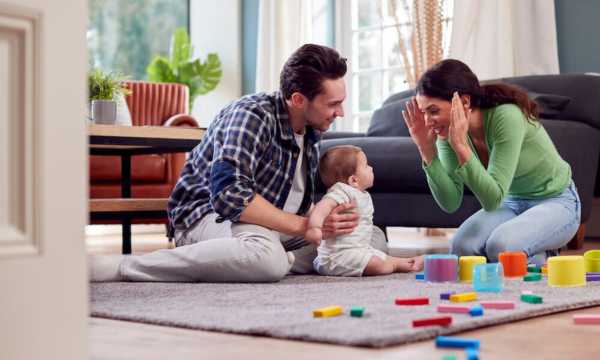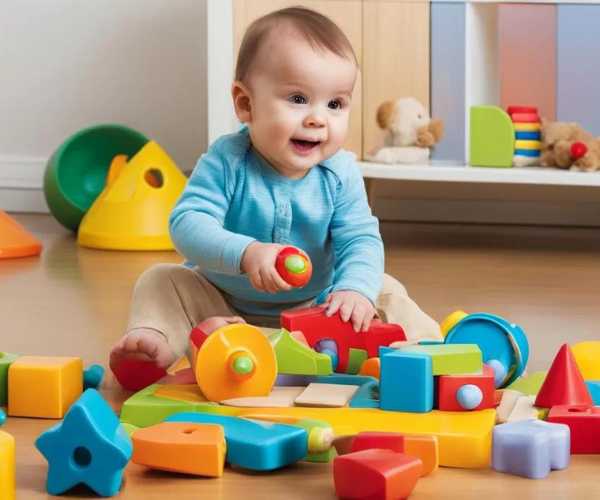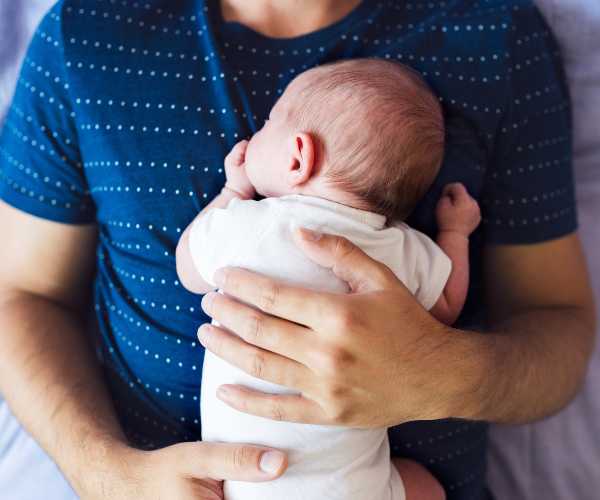Baby Development: Developmental Milestones at Each Stage
From birth, each stage of a baby development is a unique and exciting chapter, filled with significant milestones like their first smiles and steps.
Witnessing this growth is a rewarding experience. This article guides parents on this journey, exploring each stage of development and strengthening the connection with their baby.
Motor Development
A baby’s motor development refers to the skills he learns to move and control his small body.
This development begins from the first days of life, when the baby begins to move arms and legs involuntarily, until reaching important milestones, such as rolling over, sitting, crawling, and finally, walking.
Logically, at first, the movements are uncoordinated, but as time passes, the baby gains more control and precision.
Parents can help by stimulating the baby with games, placing toys within reach for him to grab and encouraging him to roll over, sit and crawl.
It is extremely important to emphasize that, when it comes to the baby development, each child develops at their own pace. Even so, it is essential to pay attention to their progress and seek medical help if there are concerns regarding their motor development.
Cognitive Development
Cognitive development is when the baby begins to learn and understand everything that happens around him. In the first months of life, this happens through the senses.
That’s why it’s very common to see little ones exploring objects, observing faces up close and paying attention to all kinds of sounds.
Soon, over time, they begin to recognize familiar people and objects, and imitate sounds and gestures.
At this stage of baby development, playing with blocks and hide-and-seek games can help stimulate their creativity.
In this sense, it is essential to provide a safe and stimulating environment so that they can explore and learn with love and security.

Parents: basis of development(Google Source)
Social Development
Finally, social development is when the little one begins to interact with other people. From a very early age, babies demonstrate a bond of affection with the people who care for them, being able to recognize their faces and voices.
As they grow, more complex social skills emerge, such as imitating behaviors, sharing toys and even understanding other people’s emotions.
Playing with other babies and interacting with adults in social situations can help them learn about cooperation, empathy and communication.
At this very important stage, parents play a fundamental role in the baby’s social development, offering love, support and opportunities for social interaction, such as playing together, reading stories and participating in group activities.
Games to stimulate baby’s development
As we saw previously, parents play a fundamental role in baby development, and games can be a great way to achieve this. Discover some of them:
- Sing and Rock: Sing your baby lullabies while you rock him. This not only calms you down, but also helps stimulate auditory development and emotional connection.
- Catch and release game: In this game you can use soft toys or colorful objects that the baby can pick up easily. Let him catch the object and then let go so he can try to catch it again. This helps in the development of motor coordination and the perception of cause and effect.
- Cloth or plastic books: These types of books are excellent! Give your baby books with colorful pictures and different textures to explore. This type of activity helps develop vision, touch and hand-eye coordination.
- Water games: While bathing, play with different toys that float in the water. This simple and fun game helps with sensory development and motor coordination.
Importance of reading for baby development
Reading moments are not just about the words on the pages, but about the bonds that are strengthened, the skills that develop and the doors that open to imagination.
Each page is a new adventure, an opportunity for the baby to discover new sounds, colors and patterns, and for parents to be enchanted by the sparkle in their child’s eyes.
Reading not only helps develop linguistic and cognitive skills, it also nurtures the connection between parents and children, creating unique moments that will be remembered forever.
How to talk to your baby
Don’t think twice about talking to your baby! Even if it seems like he still doesn’t fully understand. If you don’t know where to start, don’t worry. Check out some tips below:
- From birth, talk to your baby, even if he can’t respond yet.
- Use short sentences and simple words to make it easier for your little one to understand.
- Sing lullabies and rhymes to capture your baby’s attention.
- Tell the baby what you are doing throughout the day, such as changing diapers, taking a bath, etc.
- When your baby makes sounds or gestures, respond enthusiastically!
- Complement your words with facial expressions and gestures to help your baby better understand what you are saying.
Definitely, monitoring the baby’s development is an exciting journey, filled with significant milestones at each stage. Remember, with love, games and stories, you will shape your little one’s future, transforming each developmental milestone into a valuable memory for life.
 5 Easy Recipes That Can Help Control Blood Pressure
5 Easy Recipes That Can Help Control Blood Pressure
Maintaining a blood pressure diet is crucial for managing your health and ensuring well-being. Ad Proper nutrition can help control blood pressure, promoting a more balanced […]
Keep reading Ideal Toys That Stimulate Baby’s Development
Ideal Toys That Stimulate Baby’s Development
Explore ideal toys that stimulate baby’s development, promoting motor, cognitive and social skills. Ad The Importance of Play From the first few months, each new experience […]
Keep reading Top Tips to Soothe Baby Colic
Top Tips to Soothe Baby Colic
Baby colic is a common discomfort that affects many newborns in their first few months of life. Ad It usually occurs in the late afternoon or […]
Keep reading